Principal Investigator
Dr. Liz Mandeville (she/her)
Dr. Mandeville is currently an Assistant Professor at Northern Michigan University and is also an Adjunct Professor at University of Guelph. (She was an assistant professor of computational biology in the Department of Integrative Biology at the University of Guelph from 2019-2023.) Work in her lab focuses on quantifying and explaining variation in evolutionary processes using high resolution genomic data. Most of her work focuses on freshwater fish facing anthropogenic disturbances, and she often collaborates with conservation and management agencies. She also enjoys learning and teaching new computational approaches and programming languages, and is interested in effective visualization of multidimensional scientific data.
Liz completed her BS in Ecology and Evolutionary Biology at Yale University, followed by a PhD and postdoctoral research at the University of Wyoming.
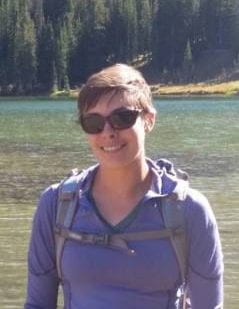
Postdoctoral Researcher
Dr. Katherine Drotos enjoys when evolution repeats itself (or seems to!). As a current Food From Thought Postdoctoral scholar, she focuses in two areas: 1) comparing clustering algorithms used in interspecific hybridization systems to examine ancestry proportions, and 2) if agriculture has played a role in the history of hybridization in leuciscid minnows. In her PhD, Katherine investigated the genome sizes of multiple lineages of lichen-forming fungi, and uncovered a mis-citation of global lichen coverage that had spread through the literature. Outside of work, Katherine likes to hang out with her dog and horses, draw, and spend time in nature.
Learn more about her work here: https://github.com/kdrotos

PhD Candidate
Ben Schultz
Ben completed a MASc in Environmental Applied Science and Management at Ryerson University, where he focused on parasite ecology, specifically regarding freshwater invertebrates. Ben’s interests include freshwater ecology, parasitology, and more recently, genomics. Part of his PhD in Integrative Biology is focusing on genomic analysis of Chrosomus dace populations, specifically on the hybridization of Chrosomus eos and C. neogaeus and the parental and hybrid sex determination mechanisms.
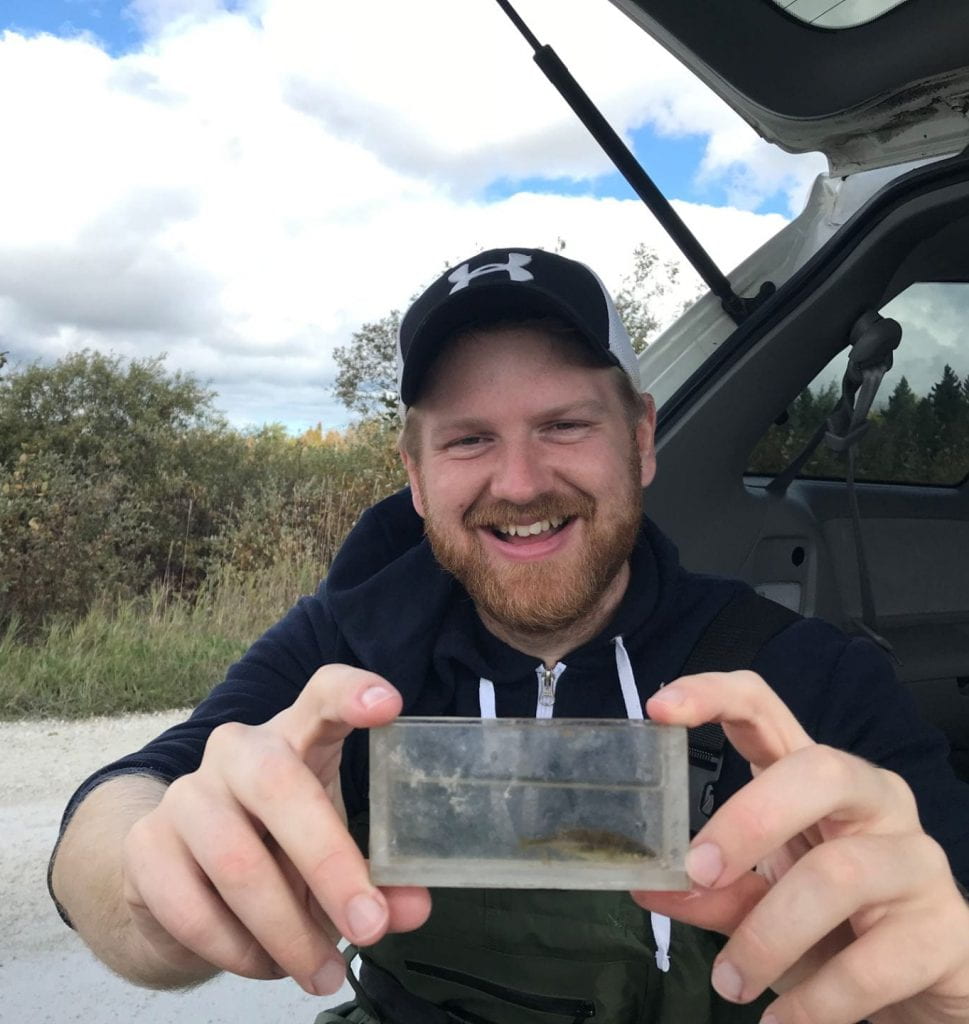
MSc Student
Amy Pitura
For her MSc in Bioinformatics, Amy is focusing on using modelling software to recreate the demographic history of minnow populations in southern Ontario. She’ll be examining how changes in population dynamics align with human activity, such as European colonization and the intensification of land use during the Industrial revolution. Amy is also interested in applying machine learning to biodiversity questions: she is part of the machine learning to identify trout hybrids project and is also working on collecting underwater footage for a future biomonitoring project. She completed her BSc in Marine and Freshwater Biology at the University of Guelph.
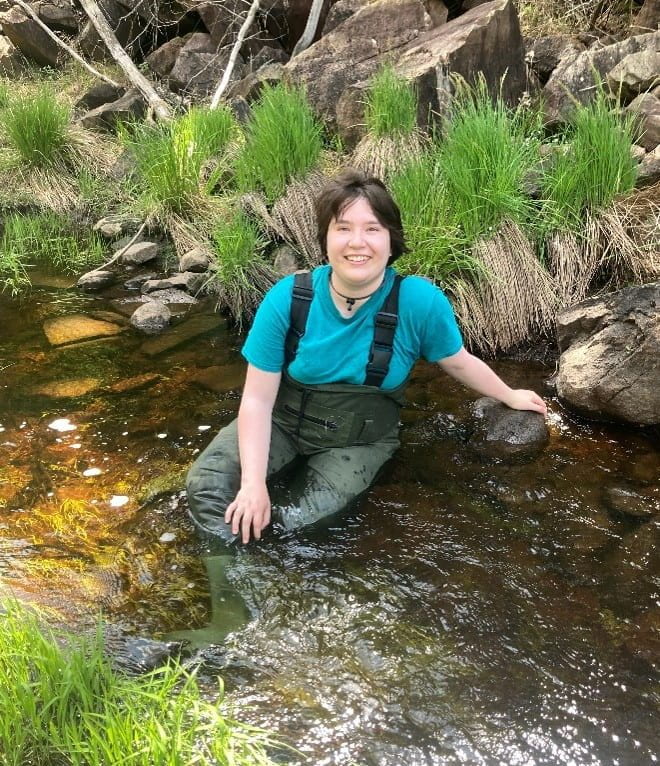
Lab Alumni
Visiting Researchers
Dr. Eryn McFarlane
Dr. McFarlane was a visiting researcher with the Mandeville Lab from 2020-2023, and is currently an assistant professor at York University in Toronto. See her faculty profile for more details: https://www.yorku.ca/science/profiles/faculty/eryn-mcfarlane/
Eryn McFarlane is an evolutionary ecologist who works on anthropogenic hybridization, using both the genetics of wild animals (most recently hybridizing deer in Scotland) and slightly less wild computer simulations for theoretical work. She’s completed work as part of the Modelscape Project with Alex Buerkle at University of Wyoming, after having done a Swedish Research Council Postdoctoral Fellow at University of Edinburgh with Josephine Pemberton. Previously, Eryn did her PhD on the hybridization and physiology of collared and pied flycatchers with Anna Qvarnström at Uppsala University and her MSc and BSc at University of Guelph with Andrew McAdam on North American red squirrels. You can read more about Eryn’s research at serynmcfarlane.wordpress.com/research/.
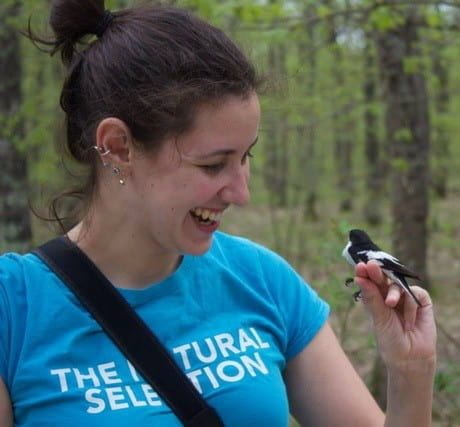
Master’s Students
Cassandre Pyne
Cassandre was a graduate student in the Mandeville lab from 2019-2021, and graduated from UoG in 2021 with a MSc in Integrative Biology. She worked as a Research Assistant in the lab from January-August 2022.
Cassandre completed her BSc at Queen’s University with a major in Biology and a minor in Computing. Following this, Cassandre completed her MSc in the Mandeville lab, where she used bioinformatic and computational tools to investigate evolutionary processes. Specifically, she focused on determining the genetic basis of sex determination in Catostomus suckers using genomic data as well as bioinformatic tools such as a genome wide association study. Cassandre started her PhD at the University of Toronto in the fall of 2022. She is working with Dr. Steven Wright and continuing her research on sex determination and the evolution of sex chromosome systems.
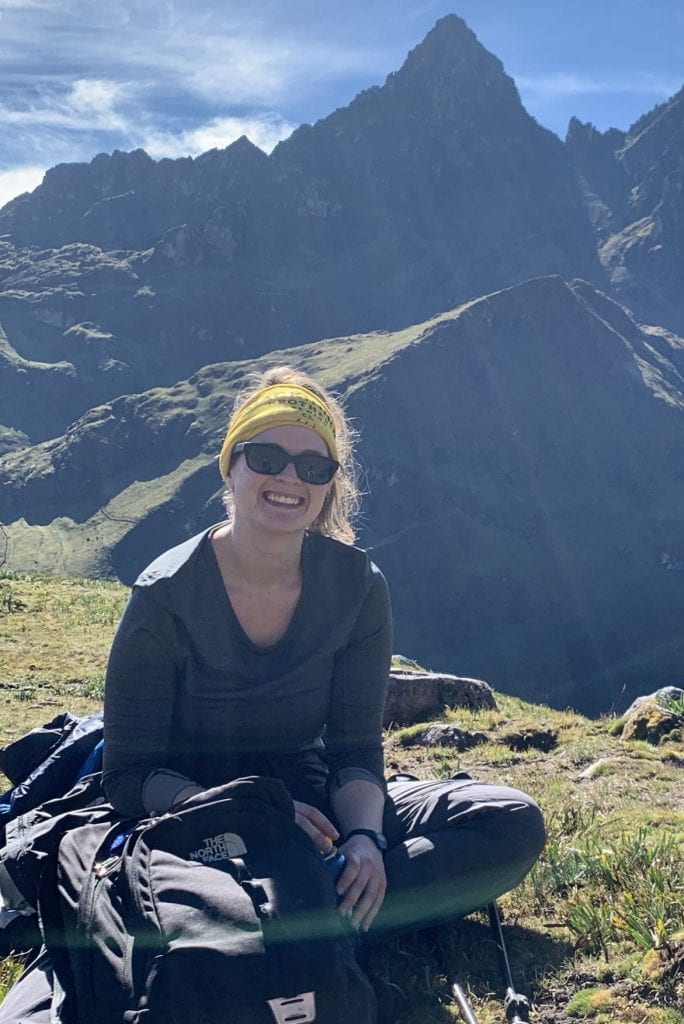
Jillian Campbell
Jill completed a MSc in the Mandeville Lab in 2023 and is currently employed at the State Museum of Natural History in Stuttgart, Germany.
Jillian completed her BSc with a major in Biology at Queen’s University. She is now working towards completing her MSc in Integrative Biology at the University of Guelph. More specifically, for her MSc Jillian is interested in using genetic analyses to determine the effectiveness of a fisheries management intervention at reducing the incidence of hybridization between native and non-native Catostomus suckers. Determining the effectiveness of such operations helps to establish stronger management and conservation approaches in the future.

Amanda Meuser
Amanda completed her MSc 2023 and is currently a PhD student at the University of Stockholm in Sweden, where she is working with ancient DNA to describe hybridization and introgression in extinct mammals.
Amanda completed her BSc in Molecular Biology and Genetics here, at the University of Guelph, and is now working towards her MSc in Bioinformatics. Her work focuses on using genomic data to identify and quantify hybridization between Southern Ontario minnow species and to compare how levels of hybridization may change across anthropogenically disturbed environments, including agriculturalized and urbanized areas. Her previous work, done for her undergrad thesis and a summer research project, focused on identifying a genetic basis for sex determination in Creek Chub. This research was recently published in the Journal of Evolutionary Biology.

Undergraduate Students
Teaghan Frauley
Teaghan is working in the Mandeville lab as an undergraduate research assistant while completing her BSc in Molecular Biology and Genetics, with a minor in Biochemistry. Teaghan is passionate about environmental conservation, specifically in aquatic ecosystems. During her time in the lab, Teaghan will be contributing to the “Genetic structure of fish populations in agricultural streams” project, along with other lab research. In the Fall 2022 semester, Teaghan will begin her 4th year research project with the Mandeville lab. Through this experience, she hopes to grow her knowledge of bioinformatic techniques and ecology as it relates to genetics.
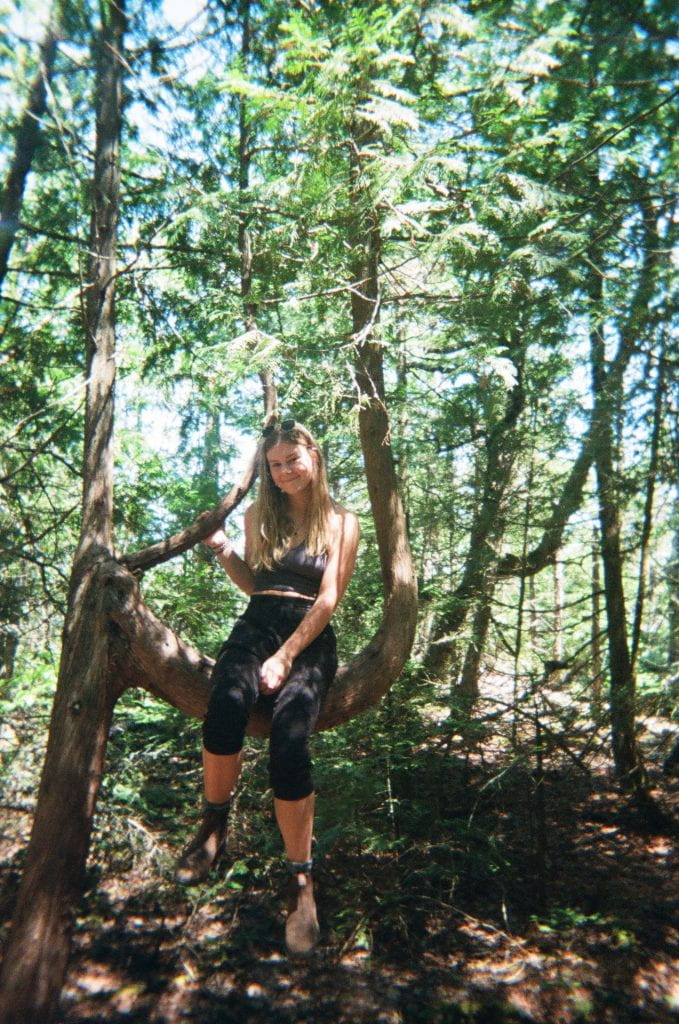
Bram Ratz, Masters in Bioinformatics

Daniel Fabrizio, Undergraduate

Samantha Arevalo, Undergraduate
Sam recently graduated from the University of Guelph with a BSc in Zoology. She aims to work in helping protect SAR species and understanding how humans have impacted aquatic ecology. With the Mandeville lab, Sam was involved with two main projects: 1) MLWIC for fish hybrids and 2) assessing population dynamics of creek chub.
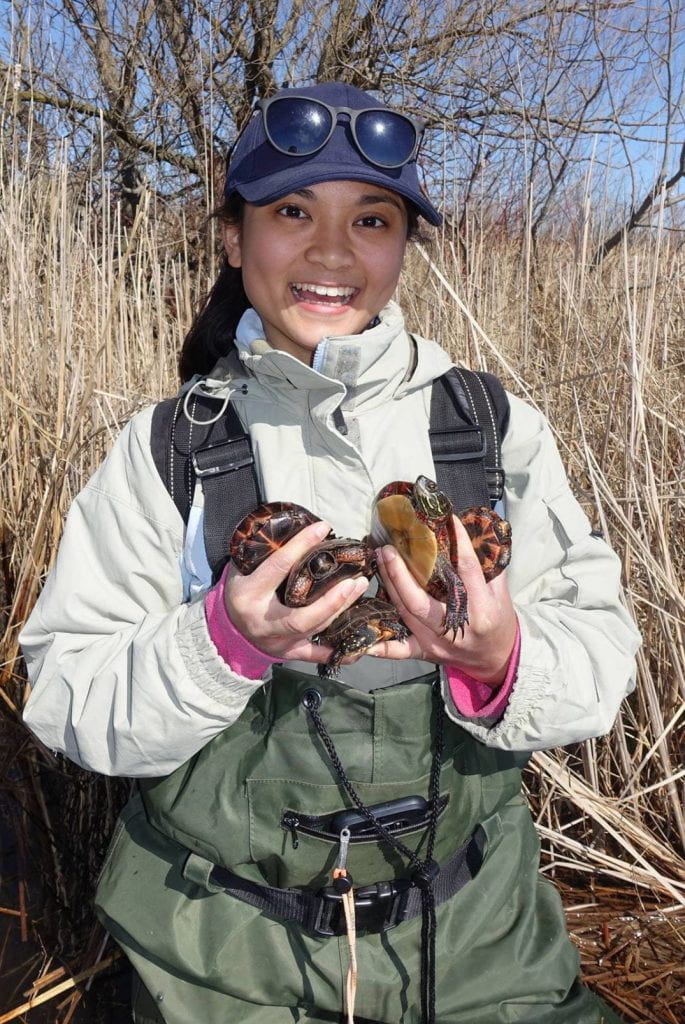
Kayleigh Paisley-Rush, Undergraduate
Kayleigh volunteered in the Mandeville lab while competing her BSc in Marine and Freshwater Biology at the University of Guelph. Kayleigh was interested in environmental ecology and conservation, especially in aquatic ecosystems.

Catherine Cooper, Undergraduate
Catherine (Cat) recently graduated from the University of Guelph with a BSc in Wildlife Biology and Conservation. During her time in the lab, Cat completed an undergraduate research project investigating genetic variation in creek chub as a function of environmental variation in a fragmented agricultural landscape.
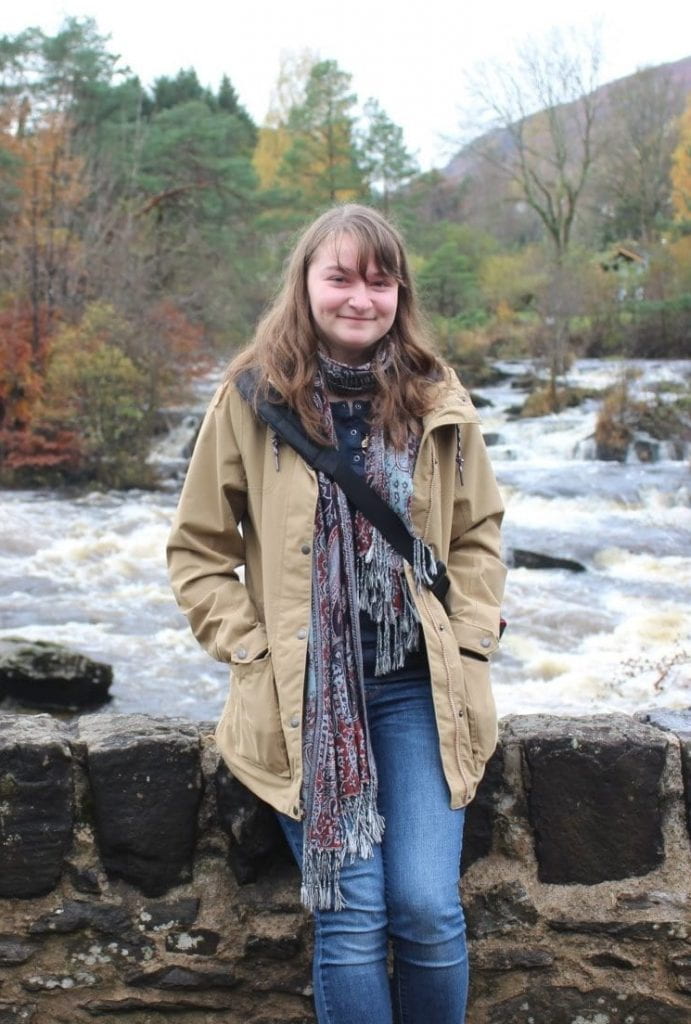
Mathew Mervyn, Undergraduate
Mat volunteered in the Mandeville lab while completing his BSc in Zoology with a minor in Business at the University of Guelph. Mat’s interests include; population dynamics, inter-species interactions, and human impacts on ecosystems.






